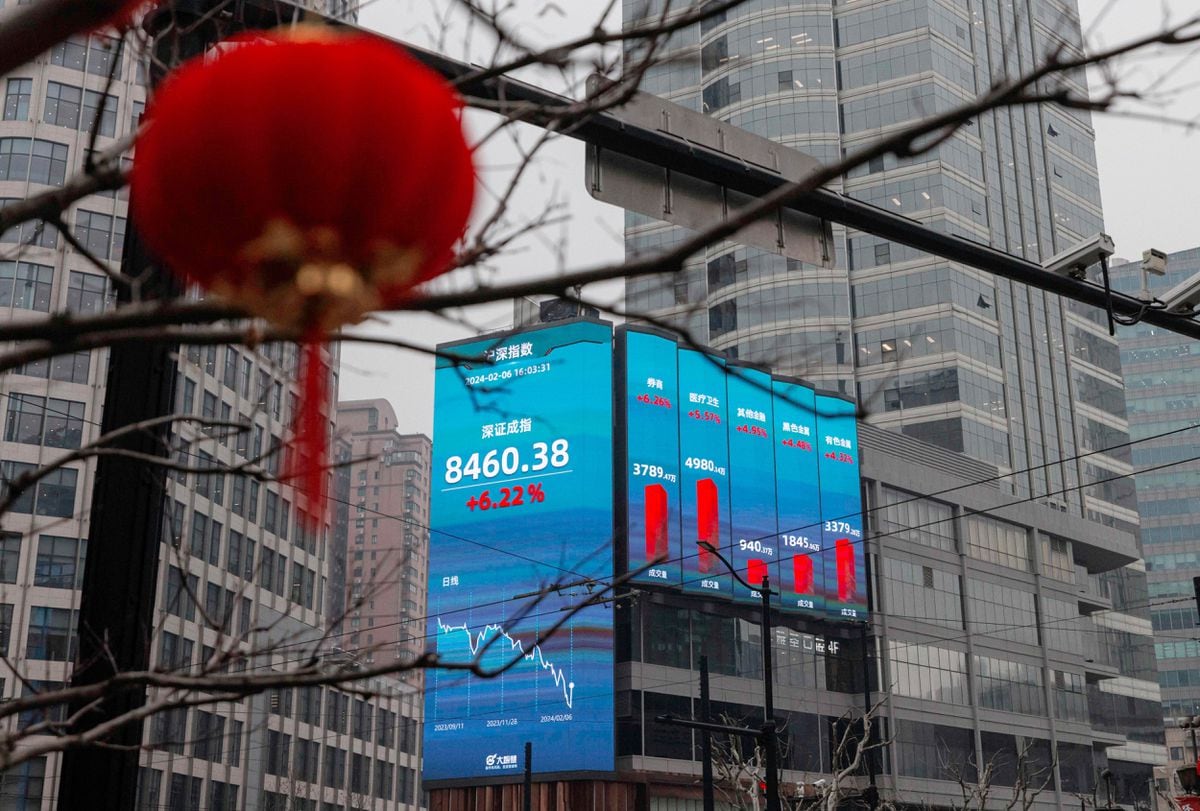Enlarge image
Countries on the verge of bankruptcy:
In Pakistan, an epochal flood catastrophe exacerbated the already tense situation
Photo: Zahid Hussain / dpa
The flood hit Pakistan hard.
After unusually heavy monsoon rains, around a third of the country is under water.
Around 1,400 people have died so far, at least a million houses have been destroyed and more than 30 million residents have been affected.
In monetary terms, experts are already estimating the damage at around ten billion US dollars.
The humanitarian catastrophe hits Pakistan in an already desolate situation.
The fifth most populous country in the world is struggling with a debt crisis, around 40 percent of the national budget already has to be spent on paying off debt.
The deficit is about $200 billion.
The International Monetary Fund (IMF) recently called for measures, and there were massive protests by the population.
Since then, inflation has also risen sharply.
The anxious question is now: Is there a risk of insolvency?
A number of developing and emerging countries are currently in the same situation as Pakistan: The pandemic has already hit them hard, for example due to the lack of tourism.
Now the next hits are coming, there is a risk of a dangerous spiral of debt.
World Bank chief economist
Ayhan Kose
already fears a global debt crisis like that of the 1980s.
A major problem for many of these countries is the currently strong US dollar.
Because many debts are denominated in dollars, the new exchange rate doesn't just make debt more expensive.
Because of the strength of the US currency and the significant rise in interest rates, many investors are also investing their capital again in Western countries, above all in the USA.
The consequence for the emerging and developing countries: There are hardly any new loans.
Poorer countries experience strong capital outflows
Many poorer countries have been feeling a massive outflow of capital for months.
The interest rate difference for bonds from African or South American countries, for example, is already more than ten percent compared to US bonds, which are classified as significantly safer.
However, it is not only the US currency that is exacerbating the problems in the affected states.
Many countries have borrowed from China since the turn of the millennium - the world's most populous country has now become the world's largest creditor.
Many countries are economically dependent on China.
With its "Belt and Road" infrastructure program worth more than 800 billion dollars (also known in Germany as the "New Silk Road Initiative"), China has made serious competition for the World Bank - incidentally without demanding disciplinary economic measures from the countries equipped with various emergency loans.
But the economy is weakening in this country, which has long been known for its strong growth.
Due to the Chinese government's strict no-Covid policy, parts of the economy have repeatedly been paralyzed, many parts of the country are suffering from a severe drought, and the real estate industry is also facing major problems.
As a countermeasure, the Chinese government recently launched an investment package worth 44 billion euros - money that will no longer flow abroad.
Warning of a worldwide domino effect
And there can also be problems with the repayment of government loans.
So far, China has had little experience in dealing with over-indebted borrowers.
In addition, the contracts concluded are often confused and only rarely transparent, criticize Western financial market experts.
In most cases, the contracts concluded with the emerging countries contain the rule that these countries must first service the Chinese loans in the event of payment difficulties.
Other states are likely to be left behind, and there are no plans for restructuring that might save the situation.
If individual countries are actually no longer able to meet their payment obligations in the future, there is a risk of a domino effect: Even countries that have not previously had dangerously high debts could then be drawn into the downward spiral of national bankruptcies if another country defaults.
As early as June,
Rebeca Grynspan
(66), Secretary General of the UN Conference on Trade and Development (UNCTAD), warned of a fatal chain reaction - the risk of this is currently even higher than at the height of the Covid 19 pandemic.





/cloudfront-eu-central-1.images.arcpublishing.com/prisa/ULLVQMZJ3B5Q65JVZ3L32DED7I.jpg)
/cloudfront-eu-central-1.images.arcpublishing.com/prisa/3FI7KHR4GI7ABUOQDZ3ENWASZQ.jpg)






